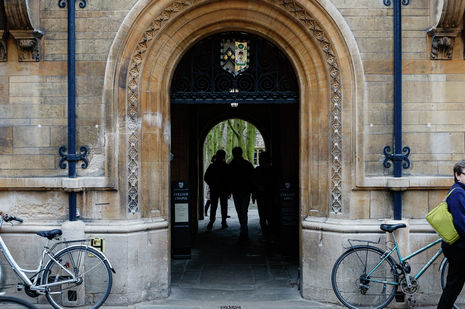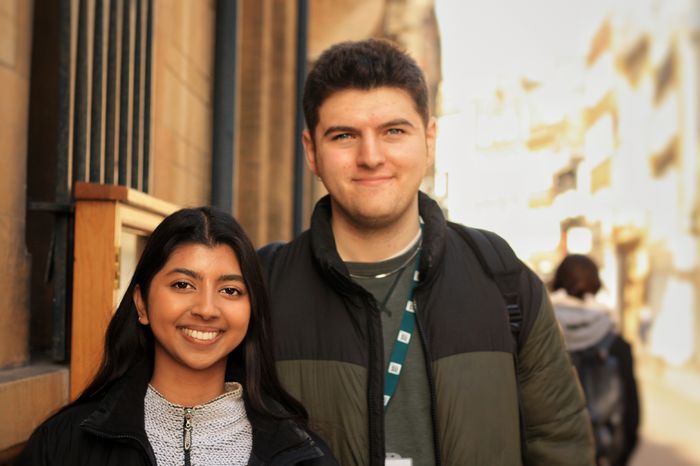SU under fire for proposal to ban private lawyers at disciplinary hearings
An SU sabbatical officer defended the proposal, saying that they are ‘not looking to deny anyone access to counsel’

The Students’ Union (SU) is facing criticism for its proposal to campaign for a ban on private lawyers in student disciplinary hearings.
The proposal, put forward as part of a motion (16/5) to reform the University’s disciplinary procedures in cases of racism and sexual violence allegations, says the SU will campaign for the “standardising [of] the legal support available to respondent students”, which includes “banning the practice of bringing private lawyers to disciplinary hearings”.
The demands in the motion were produced by the Disciplinary Reform Action Group, which “brings together students campaigning against racism and sexual violence across Cambridge”.
Other demands, which aimed to reform harassment disciplinary procedures within the University’s Office of Student Conduct, Complaints and Appeals (OSCCA), included a requirement for all cases to be handled within 60 days and for a ban on all-white panels deciding on cases of racism.
The motion, which will be voted on at the next SU Council meeting, has faced criticism on the anonymous confessions page Camfess.
One student said the proposal to ban private lawyers at hearings was “terrifying”, writing: “Just imagine if you were wrongly accused of something and were going to be chucked out, and an SU rep said ‘sorry, you can’t do everything you can to get to stay at this place you worked so hard to be [a]t, and we aren’t going to help you to either’.”
Another student said: “Yes, of course OSCCA needs reform desperately, and the experience of going through it as a victim sounds horrific, but this doesn’t mean that the first solution needs to be reducing the ways that those accused can seek counsel.
“The proposal should be far more balanced and nuanced, with a demand to ensure good and equitable legal advice for everyone, and whether ‘banning private lawyers’ was intended to be the final demand, or a means of drumming up interest, either way THAT is a dangerous thing to bandy about.”
In response to the criticism, Ben Dalitz, the SU’s welfare and community officer, said: “Currently the full demand is to standardise legal support and end the practice of respondent (i.e. accused) students bringing private lawyers to case hearings specifically in cases relating to sexual violence and racism (not in the instance of other cases such as academic misconduct).”
Under the proposed changes, Dalitz said that accused students “could still consult with whoever they choose outside of the room” and that the proposal is attempting to tackle “the power dynamic that is happening when students are able to take advantage of their wealth and connections to intimidate in that room by bringing a private lawyer as their supporting person”.
Dalitz explained that the “current stance” of the Disciplinary Reform Action Group is that “the University procedure is not a criminal case with criminal sanctions” and that “bringing private lawyers is creating a dynamic where vulnerable students are unable to access even the most basic outcomes for what has happened to them.”
Tara Choudhury, the SU’s BME officer, also defended the proposal: “We are not looking to deny anyone access to counsel. Please engage with us and all the attempts we’ve made to get as much student consultation on this as possible before getting your information secondhand from a misinformed Camfess.
“It’s heartbreaking to see so much confusion on this issue as all we’re doing is trying to get justice for those who have been victims of sexual violence as well as those who are accused and currently aren’t getting a fair experience with the procedures”.
However, another Camfess said: “You keep saying ‘well that’s not what we’re proposing’ - if you don’t want people to think you’re banning private lawyers, don’t call your drop-in ‘No private lawyers’, [it] gives the wrong impression”.
Writing in response to this article, the Cambridge SU stated that its work was “rooted in feedback and consultation with survivors, and those who have been through the OSCCA process, about their experiences and needs.
“Currently, responding students can bring a supporting person to their case hearing. The role of that person is not legal counsel, but those who can afford to are bringing lawyers, who often behave very inappropriately, intimidating and cross-examining victims”, the SU continued.
The SU defended its motion by adding that its work “seeks to address this clear and unjust imbalance within the university’s disciplinary procedures, and to lessen the impact of what already can be a traumatising process for the victim.”
This article was amended on the 1st of June to include a response from the SU.
 News / Judge Business School advisor resigns over Epstein and Andrew links18 February 2026
News / Judge Business School advisor resigns over Epstein and Andrew links18 February 2026 News / Hundreds of Cambridge academics demand vote on fate of vet course20 February 2026
News / Hundreds of Cambridge academics demand vote on fate of vet course20 February 2026 News / Petition demands University reverse decision on vegan menu20 February 2026
News / Petition demands University reverse decision on vegan menu20 February 2026 News / CUCA members attend Reform rally in London20 February 2026
News / CUCA members attend Reform rally in London20 February 2026 News / Caius students fail to pass Pride flag proposal20 February 2026
News / Caius students fail to pass Pride flag proposal20 February 2026











